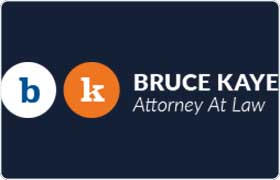Midlothian RICO Act Lawyer, Texas, page 3
Sponsored Law Firm
-
 x
x

Click For More Info:
-
Law Offices Of Bruce C. Kaye
400 N. St. Paul St.1110 Dallas, TX 75201» view mapCriminal Defense Law Changing Lives, One Case At A Time
The best thing about running my own practice is the opportunity to give my clients the individual attention they deserve.
800-920-9461
Not enough matches for Midlothian RICO Act lawyer.
Below are all Midlothian Criminal lawyers.
Steven F. Chapman
Wills, Criminal, Elder Law
Status: In Good Standing *Status is reviewed annually. For latest information visit here Licensed: 60 Years
Jeremy Brian Gordon
Criminal, Federal Appellate Practice
Status: In Good Standing *Status is reviewed annually. For latest information visit here Licensed: 19 Years
Brandon C. Sample
Federal Appellate Practice, Criminal
Status: In Good Standing *Status is reviewed annually. For latest information visit here
Donald E. Maxfield
Criminal
Joe F. Grubbs
Administrative Law, Criminal
Status: In Good Standing *Status is reviewed annually. For latest information visit here Licensed: 53 Years
Morgan Dru Taylor
Criminal, Family Law, Juvenile Law
Status: In Good Standing *Status is reviewed annually. For latest information visit here Licensed: 18 Years
Daniel Lee Barnes
Criminal, Family Law
Status: In Good Standing *Status is reviewed annually. For latest information visit here Licensed: 28 Years
John Damon Fehler
Criminal, Commercial Real Estate, Juvenile Law
Status: In Good Standing *Status is reviewed annually. For latest information visit here Licensed: 28 Years
Cindy Lorraine Buckner
Criminal, , Domestic Violence & Neglect, Federal Appellate Practice, Juvenile Law
Status: In Good Standing *Status is reviewed annually. For latest information visit here Licensed: 26 Years
Terry Kazan Ray
Commercial Bankruptcy, Criminal, Litigation, Real Estate
Status: In Good Standing *Status is reviewed annually. For latest information visit here Licensed: 49 Years
 Bruce Kaye Dallas, TX
Bruce Kaye Dallas, TX